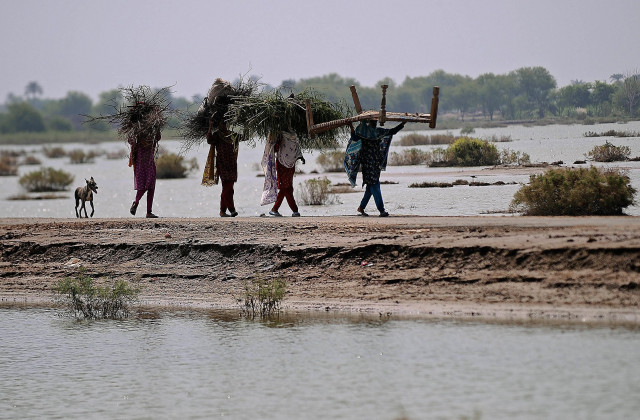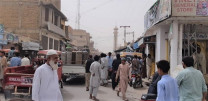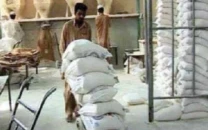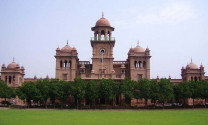Seeking strength in unity
Speakers at a conference expressed concern over the need to coordinate efforts for efficiency in flood rehabilitation

They were of the view that this inability to work at optimum efficiency was the biggest hindrance in rebuilding efforts.
They called for a district-wise assessment of the ongoing rehabilitation efforts.
Speakers at the conference included Yasmeen Rehman, advisor to the Prime Minister on women development, Anis Haroon, Chairperson of National Commission on the Status of Women, Shahnaz Wazir Ali, special assistant to PM on the social sector, Tahira Abdullah, a social activist, Alice Shackelford, Country Programme Director Unifem and Donglin Li, Country Director of International Labour Organization among others.
“Every organisation is doing its own rehabilitation in the flood-hit areas without defining their goals or coordinating with others working in the same region,” said Rehman.
She said that the current system was haphazard at the macro-level.
She said the government had no data on NGOs and donors working for the reconstruction and rehabilitation of flood victims. She suggested that NGOs form a forum where they could discuss their goals and streamline efforts in a coordinated manner.
Tahira Abdullah said NDMA had so far played no significant role for the rehabilitation of the people affected by floods.
“NDMA is facing paucity of funds and human resources,” Rehman said in response. She added that resources were not being equally divided between genders. “Women are not able to participate properly due to cultural taboos,” she said.
Tahira Abdullah said that World Health Organization (WHO) published a report on August 31 revealing that about 500,000 expecting mothers were in areas hit by floods.
She said the organisation did nothing to follow up on their conditions and took no initiative to help them through child birth.
She also questioned the government’s stance regarding 30,000 lady health workers who reportedly went missing in the flood-hit areas.
Shehnaz Wazir Ali said, “It is not the responsibility of the government to reconstruct houses for the flood victims.”
Social worker Najma Siddiqui disagreed with the idea of working with the government as she was of the view that the government worked at a snail’s pace compared to NGOs.
In their recommendations, the speakers said there should be an undisrupted supply of food for women and their representation should be equal to males. They also stressed the need to train women in non-vocational skills.
Psychological counselling is missing for females in flood-hit areas and they should be given social protection and encouraged to participate in agro-forestry, the participants said. They added that land distribution should be separate for women and they should be given disaster management training.
Availability of lady health workers should be ensured in every area and “most of all accountability of allocation of funds should be ensured”, the participants added.
Published in The Express Tribune, October 27th, 2010.



















COMMENTS
Comments are moderated and generally will be posted if they are on-topic and not abusive.
For more information, please see our Comments FAQ